Don't know if this is still relevant, but I've had exactly the same problems, as you've described above. I've managed to solve it using custom OWIN middleware component.
Some info about my application structure:
- Using MVC WebApp and WebAPI in same project (probably not the best option, but I have no time to change it, since deadline is approaching ;))
- Using AutoFac as IoC container
- Implemented custom ICurrentContext to hold information about currently logged on user (with CookieAuth in MVC and Bearer Token Auth in WebAPI), which is injected where needed (controllers, BAL objects, etc.)
- Using EntityFramework 6 for Db access
- Converted ASP.NET Identity to use int keys rather than string (http://www.asp.net/identity/overview/extensibility/change-primary-key-for-users-in-aspnet-identity)
So on to the code. This is my ICurrentContext interface:
public interface ICurrentContext
{
User CurrentUser { get; set; } // User is my User class which holds some user properties
int? CurrentUserId { get; }
}
and implementation of it:
public class DefaultCurrentContext : ICurrentContext
{
public User CurrentUser { get; set; }
public int? CurrentUserId { get { return User != null ? CurrentUser.Id : (int?)null; } }
}
I've also created an OWIN middleware component:
using System.Threading.Tasks;
using Microsoft.AspNet.Identity;
using Microsoft.Owin;
namespace MyWebApp.Web.AppCode.MiddlewareOwin
{
public class WebApiAuthInfoMiddleware : OwinMiddleware
{
public WebApiAuthInfoMiddleware(OwinMiddleware next)
: base(next)
{
}
public override Task Invoke(IOwinContext context)
{
var userId = context.Request.User.Identity.GetUserId<int>();
context.Environment[MyWebApp.Constants.Constant.WebApiCurrentUserId] = userId;
return Next.Invoke(context);
}
}
}
Some information about this component: MyWebApp.Constants.Constant.WebApiCurrentUserId is some string constant (you can use your own) that I've used to avoid typos since its used in more than one place. Basicly what this middleware does, is that it adds current UserId to the OWIN environment dictionary and then Invokes the next action in pipeline.
Then I've created Use* extension statement to include OMC (OWIN Middleware Component) into OWIN pipeline:
using System;
using Owin;
namespace MyWebApp.Web.AppCode.MiddlewareOwin
{
public static class OwinAppBuilderExtensions
{
public static IAppBuilder UseWebApiAuthInfo(this IAppBuilder @this)
{
if (@this == null)
{
throw new ArgumentNullException("app");
}
@this.Use(typeof(WebApiAuthInfoMiddleware));
return @this;
}
}
}
To use this OMC, I've put the Use* statement right after Use* statement for Bearer token inside my Startup.Auth.cs:
// Enable the application to use bearer tokens to authenticate users
app.UseOAuthBearerTokens(OAuthOptions); // This was here before
// Register AuthInfo to retrieve UserId before executing of Api controllers
app.UseWebApiAuthInfo(); // Use newly created OMC
Now the actual usage of this principle was inside AutoFac's Register method (called on some bootstrap code at the start of web application; in my case this was inside Startup class (Startup.cs), Configuration method) for my ICurrentContext implementation which is:
private static void RegisterCurrentContext(ContainerBuilder builder)
{
// Register current context
builder.Register(c =>
{
// Try to get User's Id first from Identity of HttpContext.Current
var appUserId = HttpContext.Current.User.Identity.GetUserId<int>();
// If appUserId is still zero, try to get it from Owin.Enviroment where WebApiAuthInfo middleware components puts it.
if (appUserId <= 0)
{
object appUserIdObj;
var env = HttpContext.Current.GetOwinContext().Environment;
if (env.TryGetValue(MyWebApp.Constants.Constant.WebApiCurrentUserId, out appUserIdObj))
{
appUserId = (int)appUserIdObj;
}
}
// WORK: Read user from database based on appUserId and create appUser object.
return new DefaultCurrentContext
{
CurrentUser = appUser,
};
}).As<ICurrentContext>().InstancePerLifetimeScope();
}
This method is called where I build AutoFac's container (hence the input parameter of type ContainerBuilder).
This way I got single implementation of CurrentContext, no matter how user was authenticated (via MVC Web Application or Web API). Web API calls in my case were made from some desktop application, but database and most of codebase were the same for MVC App and Web API.
Don't know if its the right way to go, but it has worked for me. Although I am still a little concerned how would this behave thread-wise, since I don't know exactly how using HttpContext.Current inside API calls would behave. I've read somewhere that OWIN Dictionary is used per-request basis, so I think this is safe approach. And I also think that this isn't so neat code, but rather a little nasty hack to read UserId. ;) If there's anything wrong with using this approcah, I'd appreciate any comment regarding it. I've been strugling with this for two weeks now and this is the closest I got of getting UserId in one place (when resolving ICurrentContext from AutoFac through lambda).
NOTE: Wherever there is usage of GetUserId, it can be replaced with original GetUserId (which returns string) implementation. The reason I'm using GetUserId is because I've rewritten ASP.NET to some extent for using ints instead of strings for TKey. I've done this based on following article: http://www.asp.net/identity/overview/extensibility/change-primary-key-for-users-in-aspnet-identity
